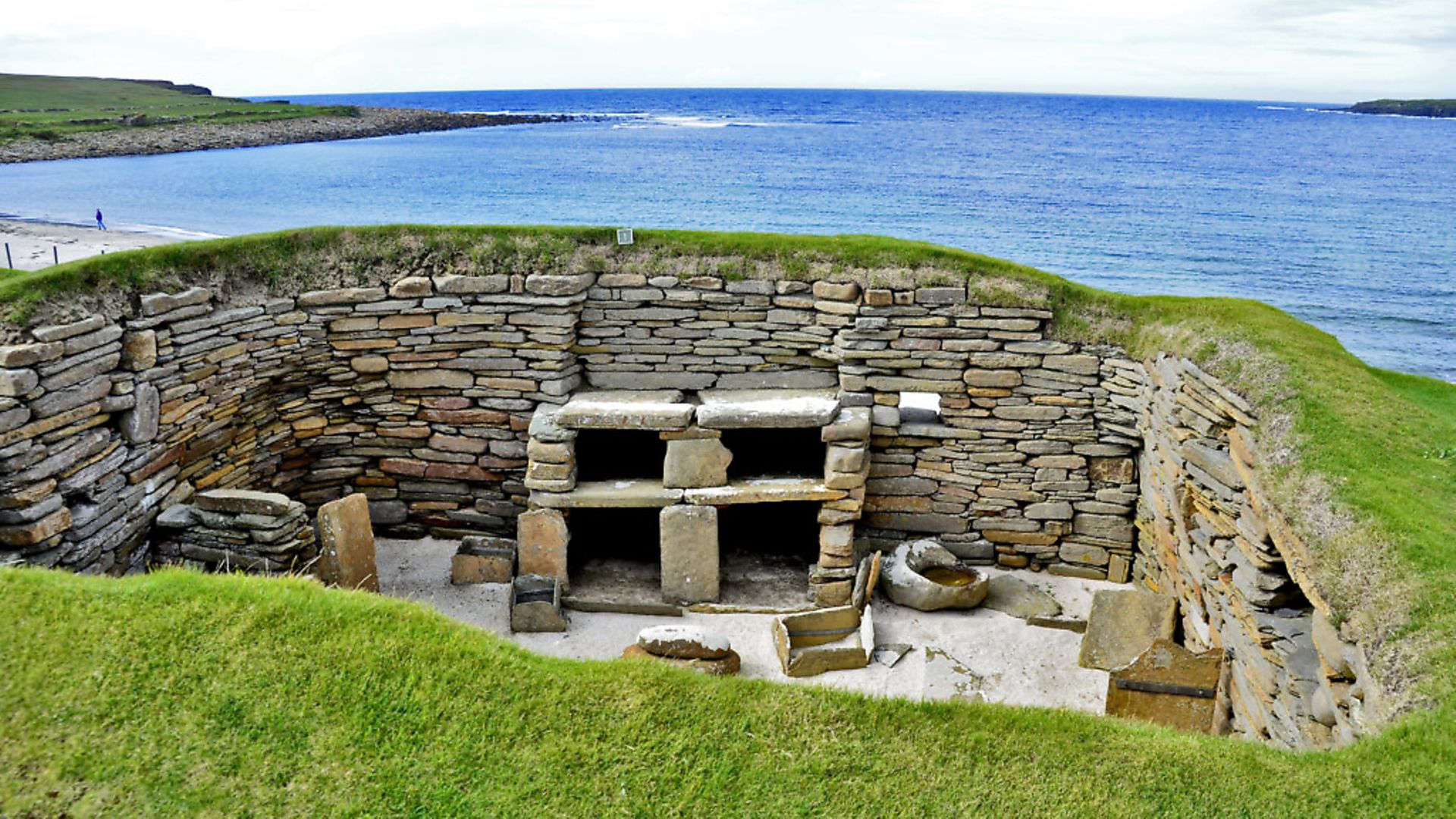
WILL SELF considers concepts of culture and what makes it.
The doyenne of early 20th century British archaeology, V. Gordon Childe, initially propounded the cultural-historical theory of European development. Taking the concept of ‘culture’ from anthropology, he recast it as a set of recognisable traits in a material culture – such as the way people make pots, implements and ornaments – or conduct burial rites. Using this typology, Childe proposed radical movements of peoples in the prehistoric era – in particular, the spread of the so-called Aryan peoples, out from their hinterland in the Asian steppes, to infiltrate Europe.
My generation – if we were interested in such things – thereby grew up with a conception of ancient Britain as a sort of cul-de-sac, at the end of numerous migration routes, tramped by assorted peoples bearing grooved ware, or drinking from distinctively hip clay beakers. It was Childe who excavated the settlement of Skara Brae, in Orkney, after it was exposed during a big blow in the early 1900s, and who predicated upon its elaborate assemblages of stone artefacts the hypothesis of some sort of ‘Neolithic revolution’, brought into these isles by migrants from the Near East, just as the Industrial Revolution bodied forth from them some 5,000 years later.
Childe – himself an immigrant from Australia – modified and changed his views as he grew older; while the development of an archaeology responsive to modish linguistics and sociology, led to a much more ‘diffusionist’ view of European cultural change.
According to this theory, populations have moved far less than Childe assumed – rather, it’s the cultures that move, as innovations are transmitted between adjacent communities. Then, in the 1990s, analysis of the human genome became possible – and with it the ability to scientifically determine the movements of peoples. I was actually living in Orkney at the time – and this was one of the first populations to be assessed using the new methods.
The results were pretty conclusive: true, the Norsemen had come, bringing with them their distinctive patterns of land ownership, and their names – but the fact remained that genetically speaking, the people I drank whisky down the pub with were the lineal descendants of the ones who built the stone houses of Skara Brae. This sanguinary purity had only been majorly diluted in the last generation, when hundreds of so called ‘good-lifers’ (after the popular suburban back-to-the-land sitcom) had arrived in the 1970s from down south. But even by the 1990s, these incomers had been absorbed culturally by the Orcadians, and spoke in the same slushy lilting accents, peppering their chatter with the preferred intensifier – ‘peedie’ – a whole-purpose diminutive.
No surprises there: the Orkneys are indeed a peedie archipelago, itself located 20 miles north of a peedie nation, Scotland, which is itself attached to another state that, while looming relatively large in the world’s consciousness, is nonetheless also pretty damn peedie. During my Orkney sojourn, I was often struck by this bizarre cultural mise en abyme, wherein I seemed to see ever-diminishing Britains, disappearing eventually in a peedie puff of identity.
Research has been published recently by the Oxford in Berlin group, showing that British migration to the rest of the EU has increased, year on year, since the referendum: 84,000 Britons are set to emigrate to another European country this year, as opposed to 59,000 in 2008 – moreover, these are proud Britons, who nonetheless cite the vitiation of their felt identity as specifically British Europeans, according to the study’s authors. In Freudian theory, we long quite as much for the absorption of our being into a great and numinous ‘other’, as we do for the pleasures of sex, or the table – so it could be that this movement is predicated not on a desire for better social care, but the peedie Brit phenotype’s self-destructive drive to merge at last with the European genotype.
Of course, over the past half-century those of us who travel much at all, have seen the material culture associated with this migration: The distinctive pots of Marmite on the remoter shelves of French supermarchés and German Supermärkte. These squat bulging forms – really, the Brits’ contemporary equivalent of the Venus of Willendorf, so suggestive are they of the gooey origins of our national being – could be taken as conclusive evidence of Childe’s cultural-historic perspective, just as much as the dreadful French adaptation of Fleabag might be taken as proof that diffusion is the main engine of cultural change. Either way you look at it, the flux and reflux of culture is as integral to its status as culture at all, as any whacky notion of purity. After all, how can you even tell you have a distinctively hip clay beaker if there are no other drinking vessels with which to compare it? Cultures transmit social mores, rituals and artefacts through space as well as time – and to employ a choice idiom foisted on us by America: Get over it.










